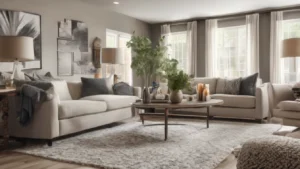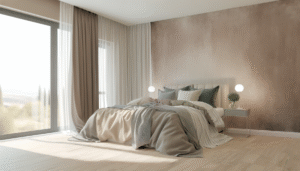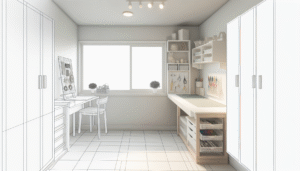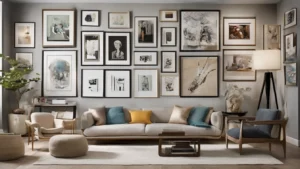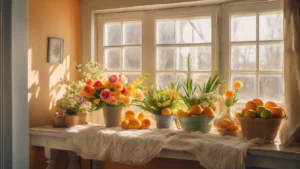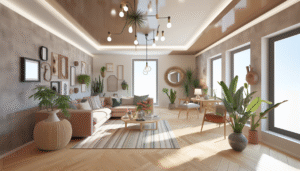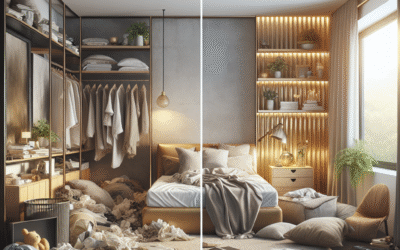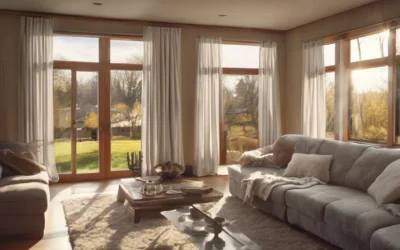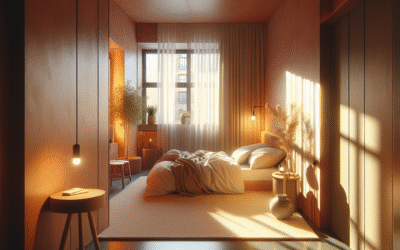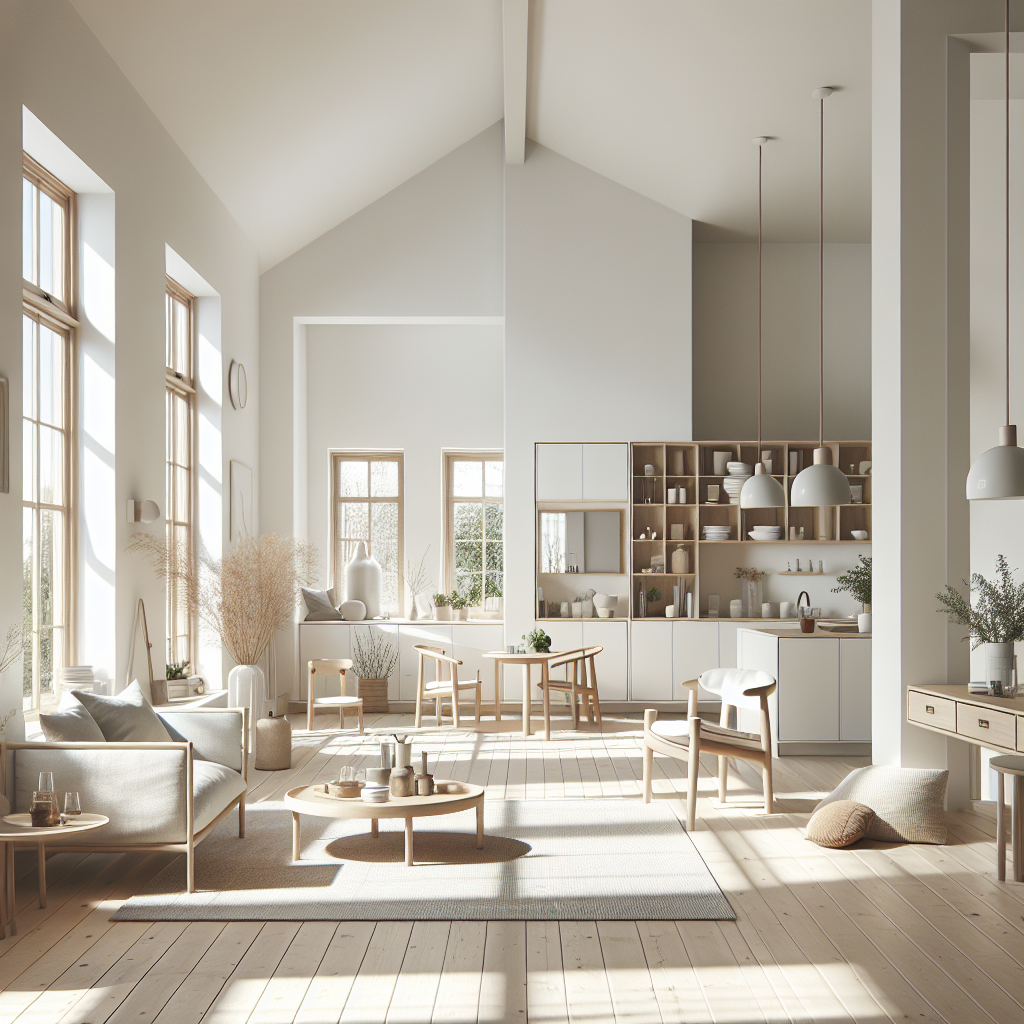
Less is More: Mastering the Balance of Space in Scandinavian Homes
What is Scandinavian Design? A Brief Overview
Scandinavian design isn’t just a style—it’s a lifestyle. Rooted in simplicity, functionality, and minimalism, it reflects the everyday lives of people in countries like Sweden, Denmark, Norway, and Finland.
When you step into a Scandinavian home, you’re often greeted by bright, open spaces adorned with natural materials and muted colors. It’s a style that emphasizes enjoyment of everyday objects, where each piece holds meaning and contributes to the whole.
The Principle of “Less is More” in Design
You’ve probably heard the phrase “less is more,” but what does it mean in the context of home design? This principle encourages a minimalist approach, emphasizing simplicity and functionality over unnecessary embellishments.
In Scandinavian homes, this idea shines through. Instead of cramming a room with décor, you’ll see carefully curated pieces that serve a purpose while still providing aesthetic appeal. It’s about finding beauty in simplicity.
The Emotional Connection to Space
Space isn’t just physical; it’s emotional too. Have you ever felt overwhelmed in a cluttered room? That sense of chaos can really weigh you down. Conversely, the airy feel of a well-organized space can uplift your spirits.
Scandinavian design creates an emotional resonance through its open layouts and absence of clutter. By reducing the visual noise, homeowners can foster a sense of calmness, allowing room for creativity and relaxation.
How to Achieve the Scandinavian Look in Your Home
Thinking of transforming your space? Start by adopting a few key principles of Scandinavian design.
- Embrace Natural Light: Utilize large windows and light, airy curtains to flood your space with sunshine.
- Choose Muted Colors: Soft whites, grays, and earthy tones keep your surroundings feeling tranquil.
- Incorporate Nature: Potted plants or natural wood elements enhance warmth and connect you to the outdoors.
- Opt for Functional Furniture: Look for pieces that are both stylish and practical—like a sleek sofa that also includes storage.
Choosing the Right Materials
Material choice plays a critical role in Scandinavian design. Natural materials such as wood, wool, and linen are commonly used, creating a grounded and warm atmosphere.
Think about the textures and colors that resonate with you. Each element should feel cohesive, creating a gentle flow throughout the space and avoiding jarring contrasts.
The Role of Open Spaces
So, why are open spaces a hallmark of Scandinavian design? Well, open layouts contribute to the idea of communal living. It encourages interaction and connection, breaking down barriers between rooms.
Add to that, open spaces allow for better airflow and light distribution, enhancing the overall ambiance. Plus, who doesn’t love a home that feels like it breathes?
Balancing Functionality and Aesthetics
You know what’s magical about Scandinavian design? It effortlessly combines the functional with the beautiful. In this approach, every item serves a purpose while also being visually appealing.
Instead of bulky cabinets, consider sleek shelving units that display not just your books but also curated art pieces. It’s pragmatism wrapped in style.
A Touch of History: The Roots of Minimalism
Understanding the historical context of Scandinavian design can provide deeper insights. Following World War II, there was a significant shift toward minimalism, driven by the desire for efficiency and simplicity in daily life.
This movement influenced not just design but the very essence of living in those regions—valuing function without sacrificing style. It’s no wonder these elements continue to inspire worldwide!
Trends in Modern Scandinavian Design
As styles evolve, Scandinavian design embraces new trends while sticking to its roots. Think about sustainable living; eco-friendly designs using recycled materials are gaining traction.
Plus, the integration of smart home technology into the minimalistic aesthetic offers both convenience and energy efficiency. It’s a way to blend tradition with innovation—pretty cool, right?
FAQs: Your Questions Answered
Scandinavian design is characterized by its minimalism, functionality, and connection to nature, creating a harmonious and welcoming environment.
Absolutely! You can find budget-friendly décor that emphasizes simplicity, or even DIY projects using natural materials.
Consider using mirrors to bounce light around, light curtains to let in sunshine, and painting walls in lighter shades.
Popular colors include soft whites, light grays, and muted earth tones, which help create a serene atmosphere.
Definitely! Scandinavian design principles, like open layouts and functional furniture, make it perfect for maximizing small spaces.
Not at all! Color can be used beautifully through accents—think cushions, artwork, or plants to add personality.
Disclaimer
The information provided in this article is for general informational purposes only and should not be taken as professional advice.
Categories
- Accent Walls & Ceilings (61)
- Art Curation & Gallery (62)
- Bedding Style Trends (68)
- Bedroom Makeover (81)
- Bohemian & Eclectic Styles (58)
- DIY & Budget-Friendly Decor (64)
- Eco-Friendly Design (62)
- Furniture Care (71)
- Home Decor & Design Ideas (162)
- Home Wellness Spaces (59)
- Integrated Outdoor Living (67)
- Japandi Style (61)
- Kids and Nursery Decor (59)
- Living Room Decor (79)
- Mix & Match Techniques (73)
- Modern & Contemporary Design (66)
- Rug Sizing & Placement (73)
- Scandinavian Design Inspiration (20)
- Seasonal Home Decor (79)
- Small Space Solutions (73)
- Wall Art & Painting Tips (77)
Recent Comments
Archives
Product Gallery
-
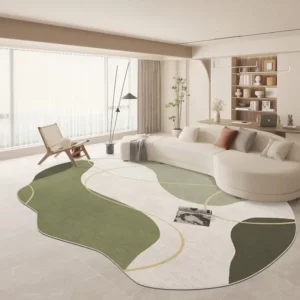 Large Area Green Rugs for Bedroom Nordic Living Room Decoration Shaped Carpet Irregular Plush Lounge Rug Home Thick Washable Mat
Rated 5.00 out of 5$55.01 – $346.86Price range: $55.01 through $346.86
Large Area Green Rugs for Bedroom Nordic Living Room Decoration Shaped Carpet Irregular Plush Lounge Rug Home Thick Washable Mat
Rated 5.00 out of 5$55.01 – $346.86Price range: $55.01 through $346.86 -
 Nordic Style Rugs for Bedroom Morandi Living Room Decoration Carpet Large Area Geometry Lounge Rug Home Cloakroom Non-slip Mat
Rated 5.00 out of 5$39.51 – $598.43Price range: $39.51 through $598.43
Nordic Style Rugs for Bedroom Morandi Living Room Decoration Carpet Large Area Geometry Lounge Rug Home Cloakroom Non-slip Mat
Rated 5.00 out of 5$39.51 – $598.43Price range: $39.51 through $598.43 -
 Irregular Shapes Living Room Decoration Carpet Modern Style Rugs for Bedroom Home Thicken Plush Rug Fluffy Soft Lounge Floor Mat
Rated 4.83 out of 5$55.91 – $347.82Price range: $55.91 through $347.82
Irregular Shapes Living Room Decoration Carpet Modern Style Rugs for Bedroom Home Thicken Plush Rug Fluffy Soft Lounge Floor Mat
Rated 4.83 out of 5$55.91 – $347.82Price range: $55.91 through $347.82

